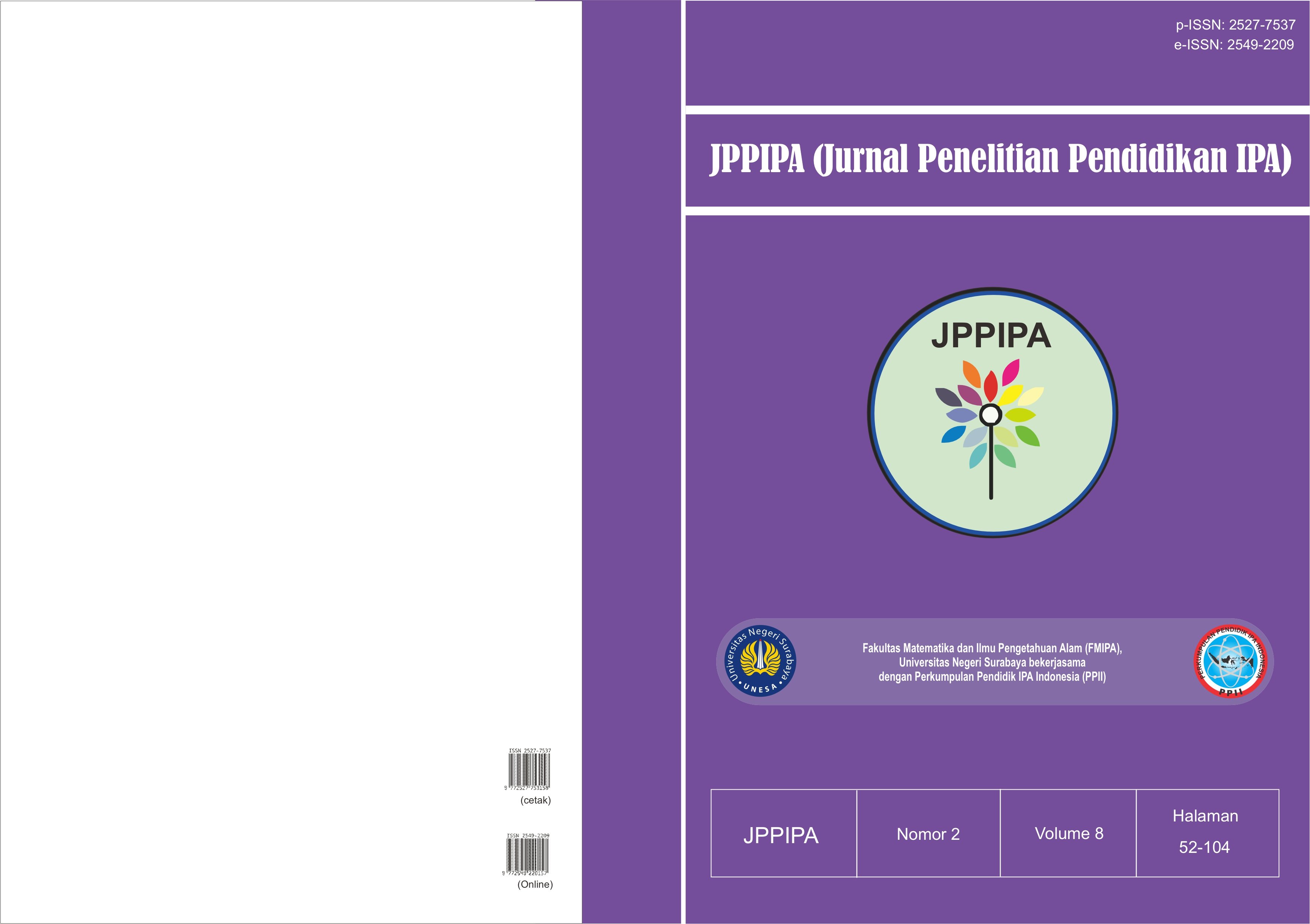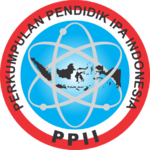STUDENT RESPONSE TO THE E-MODULE ACID BASE SOLUTION BASED ON CHEMICAL LITERACY
DOI:
https://doi.org/10.26740/jppipa.v8n2.p67-72Keywords:
E-Module, Chemistry Literation, Student ResponseAbstract
Paradigm changes in the world of education demand innovation in classroom learning, including in chemistry subjects. This study aims to see students' responses to the product development of acid-based solution e-module based on chemical literacy. The type of research used is descriptive quantitative research. The research sampling technique used random sampling with the number of research subjects as many as 36 people who were students of the 11th grade in one of public Senior High School in Gowa Regency, South Sulawesi. The data obtained were processed quantitatively with the results of the study showing that the students' response to the acid-base e-module based on chemical literacy was 98.6% of students gave a good response, so this module was good for use in learning chemistry on acid-base material. Suggestions for further research are expected to proceed to the e-module effectiveness test stage.
References
Ashari, V. R., Fatirul, A. N., & Walujo, D. A. (2023). Pengembangan E-Modul Kimia Materi Asam Basa Berbasis Flip PDF Professional untuk Peserta Didik Kelas XI SMA Negeri 1 Menganti. EDUKASIA: Jurnal Pendidikan dan Pembelajaran, 4(2), 1391-1398.
Azwar, S. (2019). Penyusunan Skala Psikologi (Edisi 2). Pustaka Belajar.
Creswell, J. W. (2016). Research Design: Pendekatan Metode Kualitatif, Kuantitatif, dan Campuran (A. Fawaid & R. K. Pancasari (trans.); Edisi 4). Pustaka Belajar.
Diantari, L. P. E., Damayanthi, L. P. E., Sugihartini, N. S., & Wirawan, I. M. A. (2018). Pengembangan E-Modul Berbasis Mastery Learning Untuk Mata Pelajaran KKPI Kelas XI. Jurnal Nasional Pendidikan Teknik Informatika (JANAPATI), 7(1), 33.
Dori, Y. J., Avargil, S., Kohen, Z., & Saar, L. (2018). Context-based learning and metacognitive prompts for enhancing scientific text comprehension. International Journal of Science Education, 40(10), 1198-1220. https://doi.org/10.1080/09500693.2018.1470351
Gola, N., Subiki, S., & Nuraini, L. (2022). Profil Respon Siswa Penggunaan E-Modul Fisika Berbasis Android (Andromo). Jurnal Pembelajaran Fisika, 11(2), 53-58.
Lubis, A. P., Ellizar, E., & Zainul, R. (2023, September). Preliminary Study of Development of Chemical Equilibrium E-Module Integrated Virtual Laboratory for High School Students. In Journal of Physics: Conference Series (Vol. 2582, No. 1, p. 012063). IOP Publishing.
Mazidah, Erna, M., & Anwar, L. (2020, October). Developing an Interactive Chemistry E-Module for Salt Hydrolysis Material to Face the Covid-19 Pandemic. In Journal of Physics: Conference Series (Vol. 1655, No. 1, p. 012051). IOP Publishing.
Midroro, J. N. A., Prastowo, S. H. B., & Nuraini, L. (2021). Analisis respon siswa sma plus al-azhar jember terhadap modul fisika digital berbasis articulate storyline 3 pokok bahasan hukum newton tentang gravitasi. Jurnal pembelajaran fisika, 10(1), 8-14.
Muhsam, J., Widiastuti, I., & Cakranegara, P. A. (2021). Hubungan Antara Respon Siswa Dalam Pembelajaran Atas Motivasi Belajar Kelas IV Sekolah Dasar. Aksara: Jurnal Ilmu Pendidikan Nonformal, 7(2), 263-272.
Rusmansyah, Anjaini, N., & Kusasi, M. (2021, November). Development of e-modules coloid materials based on PjBL-STEM to improve scientific literature and student learning outcomes of wetlands context. In Journal of Physics: Conference Series (Vol. 2104, No. 1, p. 012026). IOP Publishing.
Sitepu. (2005). Memilih buku pelajaran. Jurnal Pendidikan Penabur. 4(4), 113-126.
Susanti, T., Kurniadewi, F., & Nurjayadi, M. (2021, April). Development of protein metabolism electronic module by flip PDF professional application. In Journal of Physics: Conference Series (Vol. 1869, No. 1, p. 012025). IOP Publishing.
Thummathong, R., & Thathong, K. (2016). Construction of a chemical literacy test for engineering students. Turkish Science Education.13(3), 185-198. http://tused.org/index.php/tused/article/view/649
Thiagarajan, S. (1974). Instructional development for training teachers of exceptional children: A sourcebook.
Downloads
Published
How to Cite
Issue
Section
 Abstract views: 374
,
Abstract views: 374
, PDF Downloads: 446
PDF Downloads: 446












